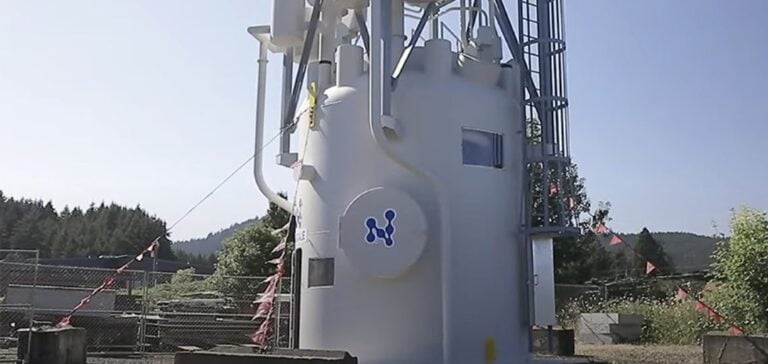The United States Nuclear Regulatory Commission (NRC) has approved the standard design for NuScale Power’s small modular reactor (SMR), in its 77 megawatt electric (MWe) version. This decision marks a key regulatory milestone for NuScale, which had previously received approval in 2023 for an earlier 50 MWe design.
Regulator completes review ahead of schedule and under budget
According to the NRC’s announcement on May 30, the final technical evaluation was completed “ahead of schedule and under budget,” demonstrating the agency’s capacity to process advanced nuclear technologies efficiently. The approved design applies to a configuration of six modules, each generating 77 MWe, submitted by NuScale in January 2023. The application was accepted for review in July of the same year.
A standard design approval confirms that the proposed reactor design meets current safety requirements. However, companies planning to build and operate a plant using this model will still be required to submit separate applications to the NRC for each specific project.
Design upgrades meet growing power demands
NuScale stated that the uprated version retains the same passive safety features previously approved by the NRC, while incorporating targeted modifications to meet increasing capacity needs. The 77 MWe design now stands as the company’s technical reference for future commercial deployments.
The approval also strengthens the position of ENTRA1 Energy, the independent platform for nuclear power plant development using NuScale’s technology. ENTRA1 holds exclusive global rights for the commercialisation, distribution, and deployment of NuScale’s SMRs, and is now able to expand its client base across industrial sectors.
Key regulatory step for NuScale and ENTRA1
NuScale’s President and Chief Executive Officer John Hopkins described the approval as a “historic step” for the company and the industry. He added that the NRC’s recognised safety standards allow progress towards delivering safe and reliable energy to a diverse customer base.
Approval of the 77 MWe design comes at a time when the US SMR market is taking shape around the need for scalable and quicker-to-deploy solutions. While no SMR project is yet operational, interest in this segment remains high amid broader efforts to diversify electricity generation sources.






















